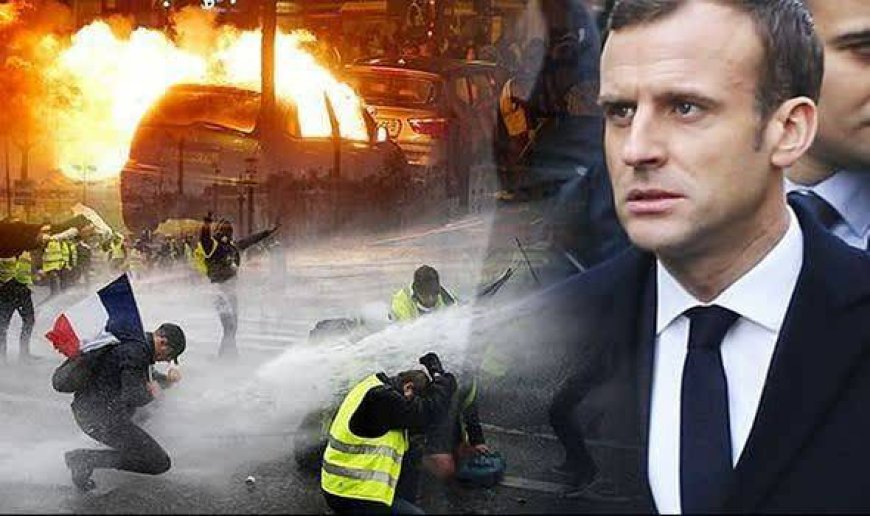A Nation on the Brink: Ethnic and Racial Discrimination Exacerbate France's Unrest
A Nation on the Brink: Ethnic and Racial Discrimination Exacerbate France's Unrest

France has been grappling with a surge of internal unrest and protests, which have now escalated to a disturbing level of violence. The ongoing confrontation between protesters and law enforcement has left the French authorities fatigued and disheartened, as acknowledged by police admissions. Recently, French Interior Minister Gérald Darmanin empathized with the weariness, sorrow, and emotional toll experienced by the police, while simultaneously emphasizing the importance of upholding their sense of responsibility. This confession from the interior minister stems from the fact that the French government has consistently relied on a substantial number of police forces to handle the protests that have unfolded in recent months and years. This situation has bred discontent among the police forces, with the government unable to assuage their anger.
The French security forces are currently grappling with an unprecedented workload, as numerous challenges arise in safeguarding the nation's security, particularly in the upcoming week. Over the next few days, France will be hosting events that will further test the capabilities of its security forces. Firstly, King Charles III of England, after a six-month delay due to security concerns related to protests against pension reforms in France, has embarked on his three-day official visit to the country. He will engage in meetings with Pope Francis and partake in the Lord's Supper in Marseille on Saturday. Concurrently, France will also be hosting the Rugby World Cup, coinciding with the King's visit. Given the existing threats and prevailing conditions in the country, it is anticipated that the French security forces will face arduous times.
On the day of Charles III's arrival, a staggering 8,000 security personnel were deployed in Paris alone, while the French Ministry of Interior announced the deployment of 30,000 police and gendarmerie forces to ensure the security of these events. The convergence of these events with threats from Al-Qaeda has further complicated the security landscape in France. Al-Qaeda members have issued threats to attack the French and Swedish embassies, as reported by Le Figaro. In response, Mr. Darmanin has cautioned that the terrorist threat remains high, necessitating a heightened level of vigilance.
The heightened security measures surrounding these imminent events raise the question of why the French administration is encountering such challenges that demand a significant surge in the deployment of security forces. The recent protests and unrest in France, in which President Macron can be seen as a prominent factor, have contributed to these circumstances. Rather than addressing issues such as violence, racial discrimination, and police misconduct, Macron's government has displayed indifference towards the concerns voiced by the populace, both on the ground and online. Moreover, discontent towards Macron's government in other areas has further fueled the flames of these protests. The people of France are deeply frustrated with the inconsistency between the statements and actions of government officials.
There exists a significant disconnect between decision-makers and the French people, particularly in relation to the implementation of laws such as pension reforms, which are deemed necessary due to economic challenges, while billions of dollars are being allocated as aid to Ukraine.













































